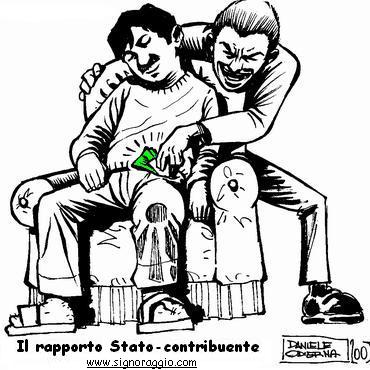Il Ministero del Tesoro elabora programmi per dare alla carità i fondi monetari inattivi delle banche.
 Centinaia di milioni di
sterline nei conti bancari rimasti inattivi per 10 anni o più
potrebbero venire orientati al settore della carità nell'ambito
dei programmi studiati dal Ministero del Tesoro.
Centinaia di milioni di
sterline nei conti bancari rimasti inattivi per 10 anni o più
potrebbero venire orientati al settore della carità nell'ambito
dei programmi studiati dal Ministero del Tesoro.
Dopo mesi di trattative
con il terziario finanziario, il Ministero del Tesoro ritiene di essere
vicino ad un accordo che orienterebbe i soldi inutilizzati al settore
del volontariato.
Ci si aspetta che Gordon
Brown, il cancelliere, annunci i particolari delle sue proposte questo
autunno nel rapporto precedente la definizione del Budget. L'importo
del denaro nei conti inattivi potrebbe ammontare all’incirca a
due miliardi di sterline, anche se le valutazioni variano a seconda di
quel che si intende per inattività.
I piani del Ministero del
Tesoro circa i conti inattivi sono controversi. I politici di
opposizione hanno espresso la preoccupazione che i ministri potrebbero
ri-orientare il denaro ai fondi propri del governo. Le associazioni dei
consumatori sono preoccupate che il Ministero del Tesoro possa decidere
che i conti siano considerati inattivi dopo soltanto tre anni e
chiedono un periodo più lungo.
Mentre i colloqui con le
banche e le cooperative edilizie stanno continuando, i ministri sono
inclini a stabilire un periodo di 10 o perfino di 15 anni –
come in Irlanda – per definire un conto inattivo.
I funzionari di Ministero
del Tesoro hanno visitato due volte Dublino per esaminare un'iniziativa
irlandese per la redistribuzione del denaro dai conti inattivi alle
organizzazioni di beneficenza.
Il sig. Brown, che
desidera incrementare l’uso delle organizzazioni volontarie in
modo complementare ai servizi forniti da enti statali e privati,
desidera che i beni dei conti inattivi vengano re-investiti nella
società. Per prima cosa il terziario deve fare di più
per riunire i titolari di conto con i loro soldi.
Fra le opzioni prese in
esame dal Ministero del Tesoro c’è la creazione di
un registro nazionale di beni non reclamati. Le banche e le cooperative
edilizie hanno loro propri tabulati, ma il tasso di precisione è
basso.
Il governo potrebbe anche
decidere di copiare il modello irlandese, in cui un fondo monetario
ridistribuisce i soldi alle cause caritatevoli e prende ogni anno una
percentuale del contenuto dei conti inattivi.
Le proposte del sig.
Brown includeranno misure di sicurezza per i titolari di conti
che desiderano riprendere i loro soldi. La gente non perderebbe la
titolarità di quanto nei loro conti.
Treasury draws up plans to give funds in dormant bank accounts to charity
By Christopher Adams, Political Correspondent
Published: September 17 2005 03:00
Hundreds of millions of
pounds in high street bank accounts that have lain dormant for 10 years
or more could be passed to charity under plans being drawn up by the
Treasury.
After months of
negotiations with the financial services industry, the Treasury is
believed to be close to an agreement that would re-direct unused money
to the voluntary sector.
Gordon Brown, the chancellor, is expected to announce details of his proposals in the pre-Budget report this autumn.
The amount of money in
dormant accounts could be as much as £2bn, although estimates
vary depending on the definition of inactivity.
The Treasury's plans to tackle dormant accounts are controversial.
Opposition politicians
have voiced concern that ministers could re-direct the money to the
government's own coffers. Consumer groups are worried that the Treasury
could decide accounts were dormant after only three years of inactivity
and have campaigned for a longer period.
While talks with banks
and building societies are continuing, ministers are more likely to
settle on a period of about 10 or even 15 years - as is the case in
Ireland - when defining whether an account is neglected, according to
Whitehall insiders.
Treasury officials have
visited Dublin twice to examine an Irish initiative for re-directing
the money from dormant accounts to charities.
Mr Brown, who wants to
make more use of voluntary organisations to complement services
provided by the state and private sectors, wants assets held in
inactive accounts to be re-invested in society. He is keen for the
financial services industry to do more to reunite account holders with
their money as a first step.
Among the options being
considered by the Treasury is the creation of a national register of
unclaimed assets. Banks and building societies have their own tracing
schemes but the success rate is low.
The government could also
decide to copy the Irish model, under which an endowment fund
re-distributes money to charitable causes and takes a proportion of
what is held in dormant accounts each year.
Mr Brown's proposals are
expected to include safeguards for account holders who want to reclaim
their money. People would not lose the entitlement to what was in their
accounts.
[ http://www.newsday.com/news/nationworld/nation/wire/sns-ap-un-summit-venezuela,0,1710185.story?coll=sns-ap-nation-headlines ]

 Centinaia di milioni di
sterline nei conti bancari rimasti inattivi per 10 anni o più
potrebbero venire orientati al settore della carità nell'ambito
dei programmi studiati dal Ministero del Tesoro.
Centinaia di milioni di
sterline nei conti bancari rimasti inattivi per 10 anni o più
potrebbero venire orientati al settore della carità nell'ambito
dei programmi studiati dal Ministero del Tesoro.